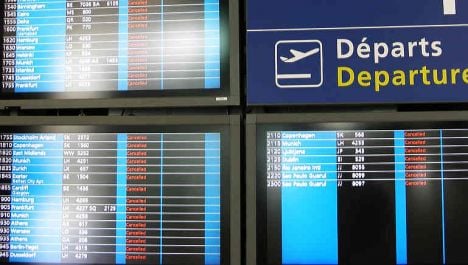The government appointed two mediators to bring the strike to an end on Tuesday.
Transport minister Nathalie Kosciusko-Morizet said there was “no question of letting French people be taken hostage by this conflict during Christmas holidays.”
“If the situation does not improve we will take appropriate action,” she added.
Airports in Lyon and Toulouse as well as the Roissy airport in northern Paris have been worst hit. Paris’ southern Orly airport has not yet been affected by the strike.
Action looked set to spread to Nice, Mulhouse and Rennes on Tuesday, reported BFM TV.
At Paris’ Roissy airport there were no cancellations on Monday. “Of 630 planned flights, 450 took off with an average delay of 40 minutes,” said a spokesperson.
Union leaders seemed determined to maintain a tough stance.
“We know very well that if we give in we will stay in the same spiral,” said Christine Hamiani of the CGT union, reported daily newspaper Libération.
“We won’t get anything and will keep being treated like cattle.”



 Please whitelist us to continue reading.
Please whitelist us to continue reading.
Member comments